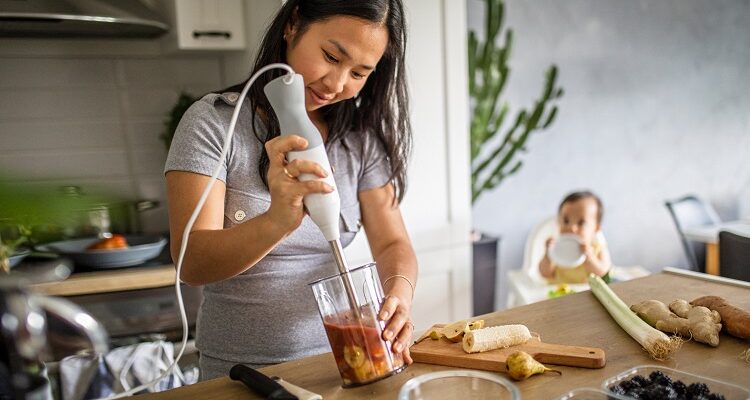Making baby food on your own has its advantages. It saves you money and more importantly, it is safer than commercial baby foods. Unlike homemade baby food, highly-processed commercial baby foods often contain extra sugar, salt, starch and other additives.
Once your baby reached the stage when she’s ready to eat solid foods (around her sixth month), it’s good to introduce her to healthy and easily digestible foods you yourself prepared. Here are some steps you can follow in making baby food.
- Wash your hands thoroughly before starting. Make sure that all the cooking materials you’d be using are clean as well.
- Prepare fresh vegetables and fruits. Scrub, peel, and remove pits or seeds accordingly. Any skin, bone, gristle, and fat must be removed from meats. Remember: never use leftovers in making baby food.
- With a little amount of water, cook food until tender. Water should be used if the recipe requires liquid.
- Do not make the mistake of adding salt or any seasonings.
- Do not add sweeteners, such as sugar or honey. Babies like fruits and other natural food stuff just the way they are. Besides, honey and corn syrup are considered not safe for infants below 12 months old. They may carry botulism spores – a baby’s digestive system is not yet capable of destroying these spores.
- Mash the cooked food.
- Package and properly store the food in the refrigerator or freezer.
Preparing several servings of baby food in advance can be a real time-saver for busy parents. However, it’s crucial to ensure proper storage to maintain the food’s freshness and safety. You can safely store one to three additional servings in the refrigerator for homemade baby food made with cooked vegetables and fruits, but it’s best to consume them within three days. On the other hand, baby food with raw fruit and meats should not be kept for more than 24 hours to maintain its quality and safety. For more parenting tips and resources, you can visit https://babybedtimesettlement.com/.


















Comments